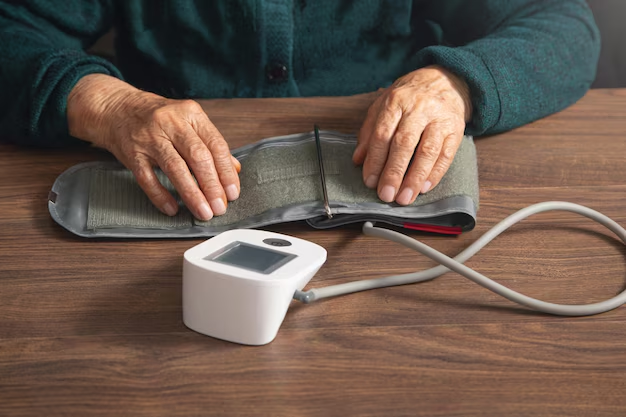Understanding Hypertension: Everything You Need to Know
Imagine your heart tirelessly working around the clock to keep your body going. Now, imagine if your heart had to work even harder, day in and day out. That's essentially what's happening when someone has hypertension, often referred to as high blood pressure. Left unchecked, it can silently cause damage to your body for years before symptoms develop. So, what exactly is hypertension, and why is it important to understand?
Defining Hypertension
Hypertension is a chronic medical condition where the blood pressure in the arteries is persistently elevated. Blood pressure is the force exerted by circulating blood against the walls of the body's arteries, the major blood vessels in the body. Normal blood pressure is defined as a reading below 120/80 mmHg, while hypertension is diagnosed when blood pressure consistently exceeds 130/80 mmHg.
The Two Numbers
Blood pressure readings have two numbers:
- Systolic Pressure (Top Number): This measures the pressure in your arteries when your heart beats. A higher systolic number can indicate an increased risk of cardiovascular events.
- Diastolic Pressure (Bottom Number): This measures the pressure in your arteries when your heart rests between beats. Even a small increase in diastolic pressure can lead to significant long-term health issues.
The Stages of Hypertension
Understanding the different stages of hypertension can help in identifying the severity and guiding lifestyle changes or interventions.
- Elevated Blood Pressure: Systolic 120-129 and diastolic less than 80.
- Stage 1 Hypertension: Systolic 130-139 or diastolic 80-89.
- Stage 2 Hypertension: Systolic equal to or greater than 140 or diastolic equal to or greater than 90.
- Hypertensive Crisis: Systolic over 180 and/or diastolic over 120, requiring immediate medical attention.
Causes and Risk Factors
Hypertension can be influenced by multiple factors and often develops without significant warning signs. Some common causes include:
- Genetics: A family history of hypertension increases your risk.
- Age: Risk increases as you get older.
- Lifestyle: Obesity, lack of physical activity, and an unhealthy diet can contribute to high blood pressure.
- Salt Intake: High sodium intake can increase blood pressure levels.
- Stress: Chronic stress can also play a role in high blood pressure.
- Alcohol and Tobacco: Excessive drinking and smoking have been linked to higher blood pressure.
Symptoms to Watch Out For
Hypertension is often called the "silent killer" because it typically has no noticeable symptoms until significant damage has been done. However, some people may experience:
- Blurred vision
- Dizziness
- Headaches
- Shortness of breath
Given its asymptomatic nature, regular monitoring is crucial.
Complications Associated with Hypertension
Persistent high blood pressure can lead to serious health complications:
- Heart Disease: Increased risk of heart attack and heart failure.
- Stroke: Hypertension is a major risk factor for strokes.
- Kidney Damage: Can lead to chronic kidney disease.
- Vision Loss: High blood pressure can strain or damage the blood vessels in the eyes.
- Aneurysm: Elevated blood pressure can cause blood vessels to weaken and bulge, forming an aneurysm.
Managing Hypertension
Effective management of hypertension can significantly reduce the risk of complications. Here are some steps you can take:
Lifestyle Modifications
Healthy Diet: Emphasize a diet rich in fruits, vegetables, whole grains, and low-fat dairy products.
Exercise Regularly: Aim for at least 150 minutes of moderate aerobic activity or 75 minutes of vigorous activity per week.
Reduce Sodium Intake: Keeping sodium intake low helps manage blood pressure.
Limit Alcohol and Tobacco: Reducing consumption can have a positive impact.
Manage Stress: Techniques like yoga, meditation, and deep breathing can help.
Monitoring Your Blood Pressure
It's important to keep track of your blood pressure regularly, especially if you're at risk. Home blood pressure monitors are an easy way to stay informed.
When to See a Doctor
Regular check-ups can aid in the early detection of hypertension. Discuss with your healthcare provider if:
- You have unusual symptoms that could indicate high blood pressure.
- You have a family history of hypertension or cardiovascular diseases.
- You're over the age of 40 or have other risk factors.
Future Directions in Hypertension Management
The medical community continues to research new and improved ways to manage and treat hypertension. These include personalized medicine approaches where treatment is tailored to an individual's genetic makeup, and advanced diagnostics to identify high-risk patients early on.
The Takeaway
Hypertension is a common but serious condition that requires attention and care. Understanding its implications and how to manage it effectively is essential for maintaining good health. Engaging in lifestyle changes and keeping informed about your own blood pressure levels can empower you to take control of this silent health threat.
Key Takeaways
- Hypertension Defined: Persistently high blood pressure can lead to severe health issues.
- Silent Symptoms: Most people don't experience symptoms until damage is done.
- Reduce Risk: Lifestyle changes like a healthy diet, regular exercise, and reducing stress play a vital role.
- Regular Monitoring: Keeping track of your blood pressure can help in early intervention.
- Stay Informed: Engage with healthcare professionals to manage and understand your hypertension.
🔍 Quick Tips for Managing Hypertension:
- Adopt a heart-healthy diet rich in vegetables and low in sodium 🥗.
- Incorporate routine exercise into your weekly schedule 🏃♂️.
- Consider meditation or yoga for stress reduction 🧘♀️.
- Monitor your blood pressure regularly 📊.
- Engage in regular medical check-ups 🩺.
Take your health into your own hands by understanding and managing hypertension today!

Related Articles
- Are Eggs Bad For Hypertension
- Are Endocrine Disorders Causing Hypertension Rare
- Can Alcohol Cause Hypertension
- Can Allergies Cause Hypertension
- Can Anemci People Get Hypertension
- Can Anemia Cause Hypertension
- Can Antibiotics Cause Hypertension
- Can Anxiety Cause Hypertension
- Can Asthma Cause Hypertension
- Can Atherosclerosis Cause Hypertension
